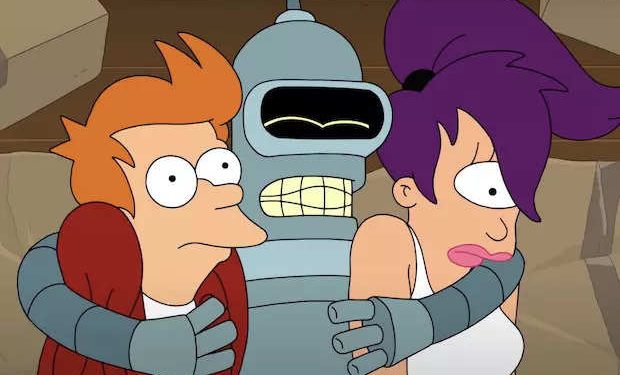Matt Groening-authored Futurama may not have survived as long as that of the Simpsons, but now with fourteen years and 124 episodes underneath its belts, it had a fairly good run (and it’s coming back!). And, unlike many shows that have lasted beyond a decade, Futurama has retained its excellence over the years. In fact, a few of the show’s finest episodes occurred near the conclusion.
The possibilities afforded by the future world sparked the “Futurama” crew’s imaginations. The exploits of unfrozen 20th-century delivery lad Philip J. Fry and the Planet Express crew are both hilarious and clever.
“Futurama” has so much good going on that it’s difficult to choose which episodes are the series’ finest. However, after going through the entire program, we believe we have a good list.
Let’s have a look at our top 25 Futurama episodes, which include episodes both from FOX and Comedy Central run. We’ve left out the made-for-DVD movies to simplify the process and since none of them genuinely stood out between Futurama’s finest storylines. Sorry!
Table of Contents
Toggle25. The Sting
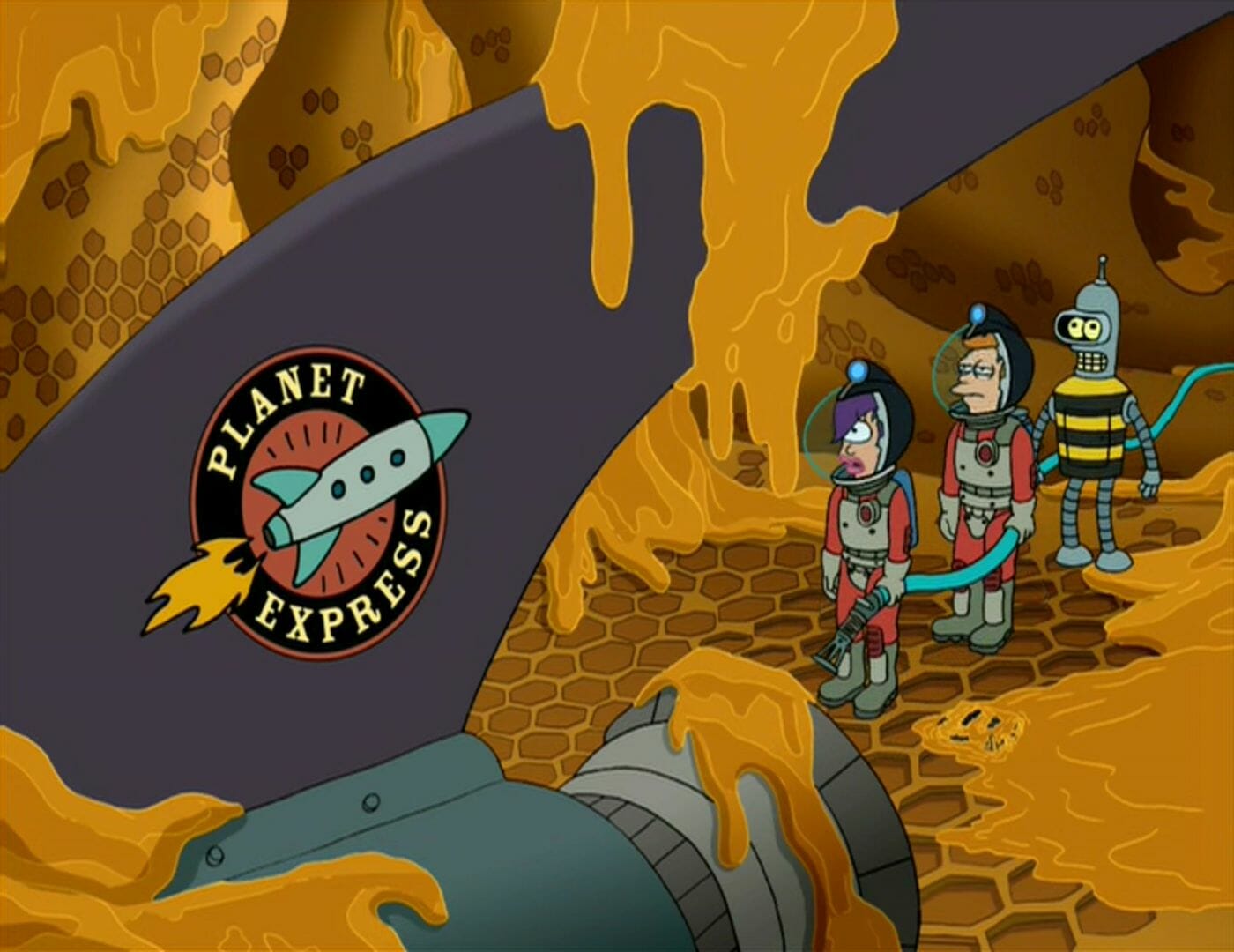
- Season 4, Episode 12
This is certainly one of Futurama’s strangest and most weird episodes, delving into territory few animated comedy shows dare to explore. The Planet Express crew was ordered to harvest honey from a massive space bee colony in “The Sting,” but before they can leave, Fry gets stabbed by a bee stinging and dies.
Leela is unable to cope and is haunted by psychedelic dreams as a result of how the operation plays out. It’s weird stuff, yet “The Sting” delivers a gripping narrative while maintaining a distinct sense of humor. It tops our list for that reason.
24. The Day the Earth Stood Stupid
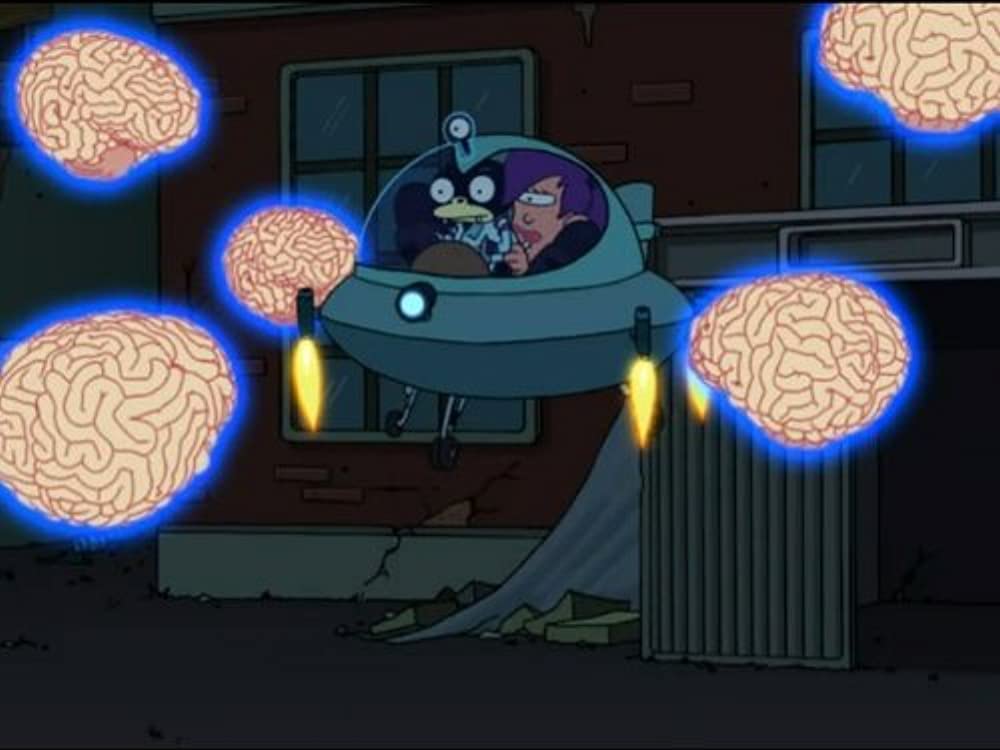
- Season 3, Episode 7
Futurama is mostly a procedural TV program with self-contained arcs. Nibbler, Leela’s lovely and seemingly brainless pet, is not one of them. Over the course of the show, we find that Nibbler is a cunning mastermind who periodically employs individuals of the Planet Express crew to ensure the universe’s survival.
The first episode in this series, “The Day the Earth Stood Stupid,” reveals that, for unknown reasons until afterward, Fry is impervious to the attacks of an evil race known as the Brain Spawn. “The Day the Earth Stood Stupid” is the first episode to include Hypnotoad, in addition to beginning a very well-planned plot for Fry.
23. The Devil’s Hands are Idle Playthings – Robot devil
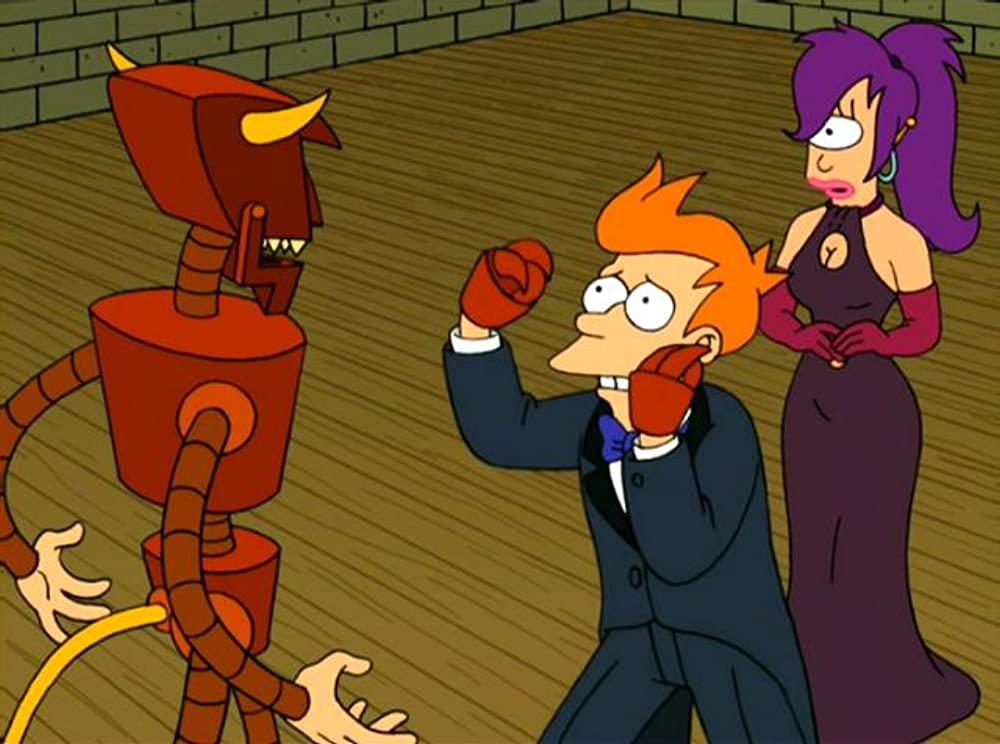
- Season 4, Episode 18
When it initially aired in 2003, “The Devil’s Hands are Idle Playthings” was supposed to be the series finale (final episode) of Futurama. Of course, it’s now one of countless tales advancing Fry and Leela’s epic relationship.
Nonetheless, because of Fry’s sad yet amusing interactions with Robot Devil, and a spectacular, operatic ending, this series finale remains a fixture in the couple’s continuous love story. (“I can’t believe everyone is simply improvising!”)
22. A Pharaoh to Remember
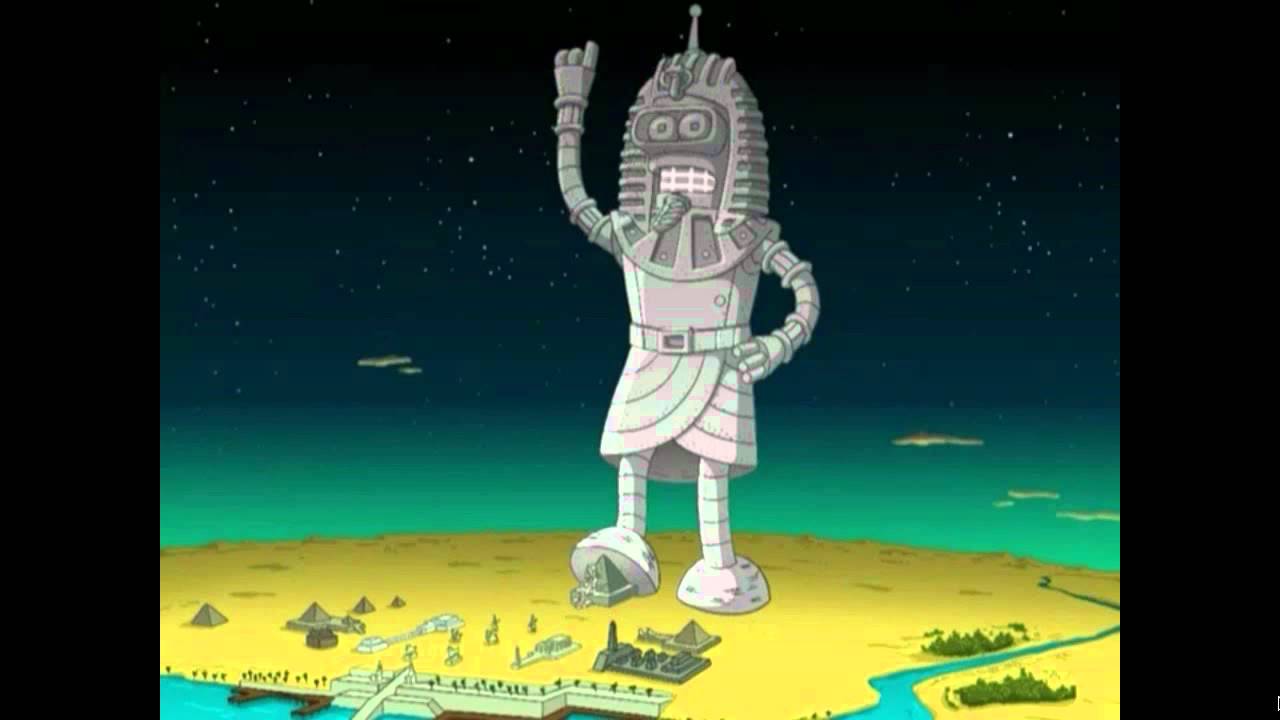
- Season 3, Episode 17
This Season 3 episode depicts Bender as his most human, which isn’t always a good thing. After a news program refuses to give him some credit for his spectacular water park theft, Bender has an existential crisis regarding his legacy.
Bender resolves to build a monument to himself when Farnsworth sells the Planet Express crew into servitude on an Egyptian-style planet. It’s difficult to despise Bender no matter how badly he acts in quest of his objective – his anxiousness is simply too familiar. This episode on the dread of being forgotten is, fittingly, memorable.
21. Where No Fan Has Gone Before
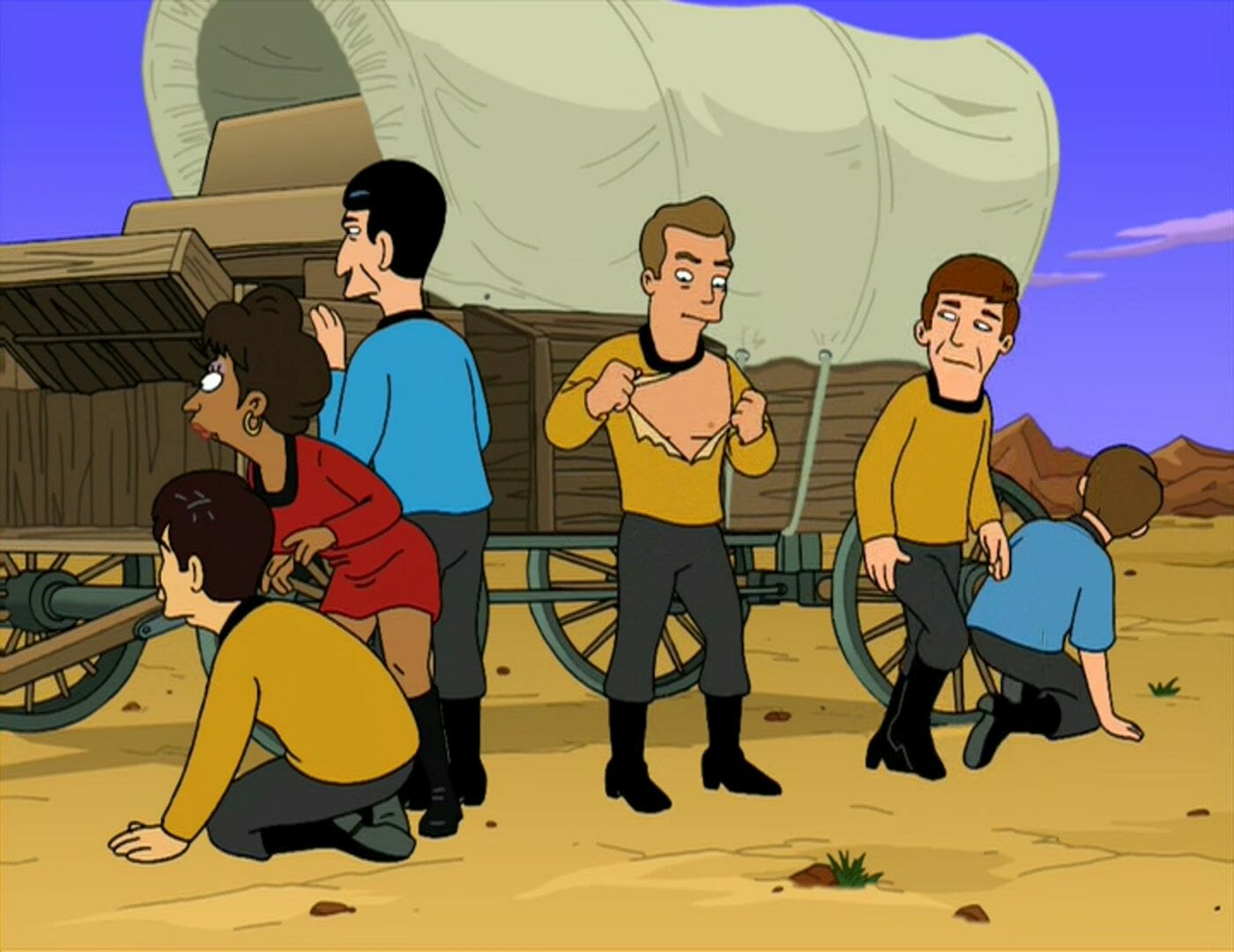
- Season 4, Episode 11
“Where No Fan Has Gone Before” is indeed the best star trek fan service episode, including William Shatner, Leonard Nimoy, Walter Koenig, George Takei, and Nichelle Nichols – as selves – as well as Next Gen’s Jonathan Frakes, because why not?
“Where No Fan Has Gone Before,” which has several narrative elements based on the original series, sees Fry meeting the re-embodied ensemble of Star Trek who really are prisoners in the world of a very strong and loyal fan. Despite its numerous nods and references, this installment is one that any sci-fi lover, Trekker or not, can appreciate.
20. Amazon Women in the Mood
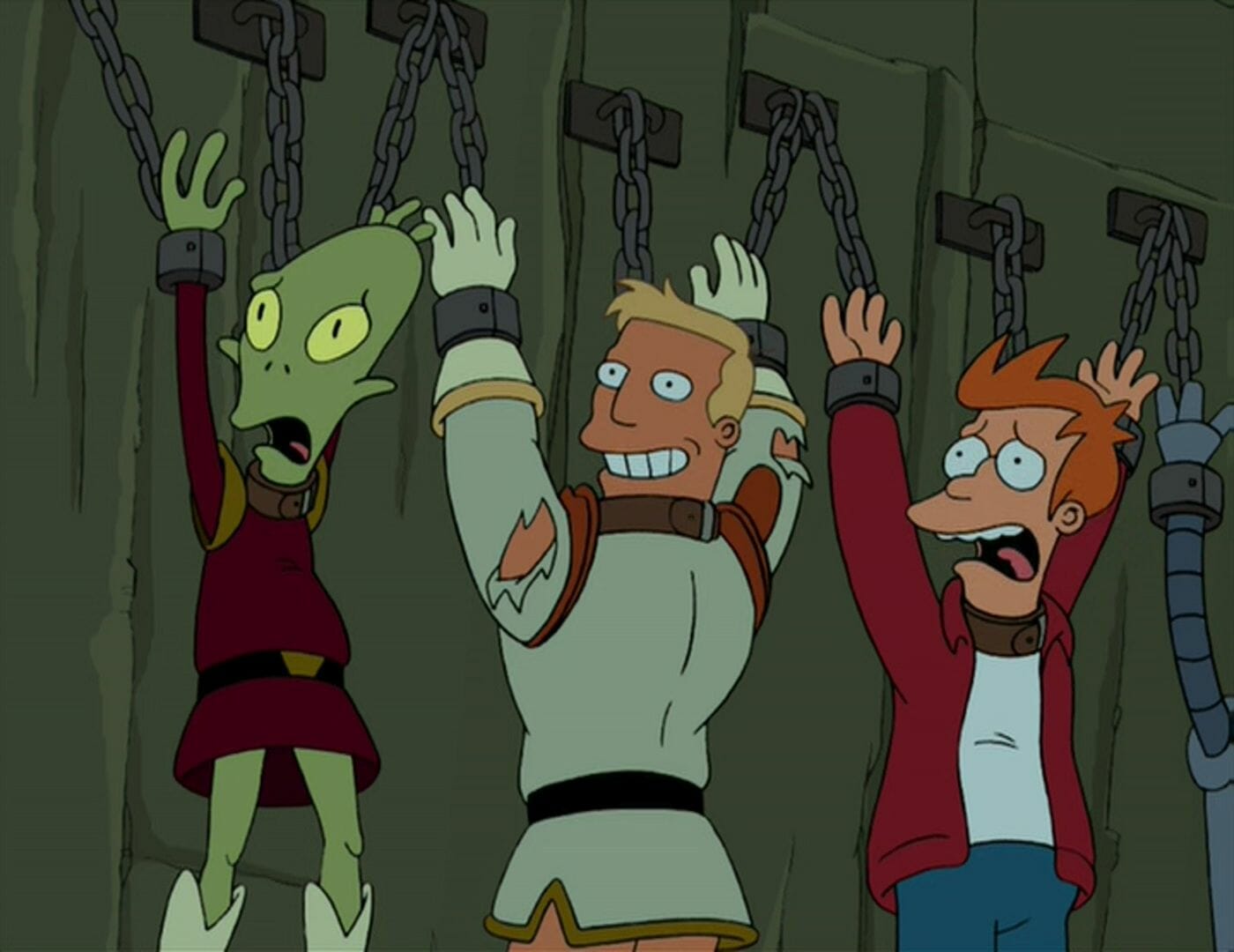
- Season 3, Episode 5
For the sake of this ranking, “Amazon Women in the Mood” is by far the funniest Futurama episode. It has everything in terms of topic matter, visual imagery, and personality interplay. Zapp accidentally crashes the restaurant into an undiscovered planet when he organizes a dual half-date with Leela, Kif, and Amy.
When Fry and Bender arrive to help, they discover that they have landed on a planet populated entirely by huge Amazon women. The iconic “snoo-snoo” scene in which the boys are condemned to death by “pleasure” is, of course, the true clincher here – that is until Leela, Amy, and Bender bail them out.
This, combined with the Fem-puter turn at the conclusion, results in “Amazon Women in the Mood” being one of the funniest episodes.
19. The Late Philip J. Fry
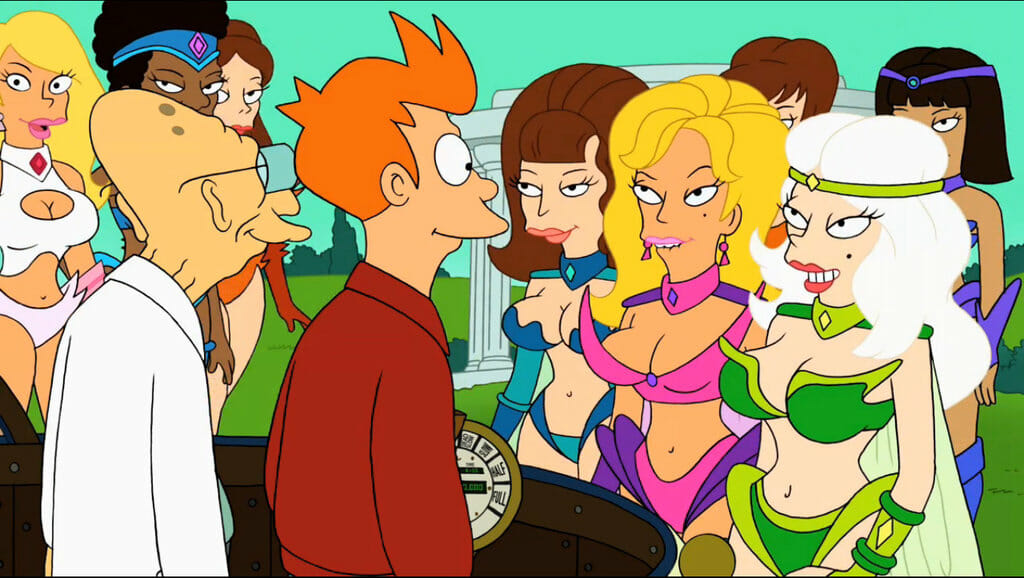
- Season 6, Episode 7
“The Late Philip J. Fry” may be the first episode of Futurama’s Comedy Central resurrection that justifies the show’s comeback.
You’ll understand why once you’ve seen it. The Professor fabricates a forward-only time capsule, sending him, Fry, and Bender 10,000 years down the road. To return, they must travel further into the future till a new machine that can travel backward is built.
Elsewhere, Leela awaits for Fry to come up for dinner, which he never shows up for. “The Late Philip J. Fry,” which once again combines aspects of comedy and tenderness, is a wonderful narrative presented over time, but with plenty of Futurama zing to keep stuff light. Once it comes to emotional episodes, this one stands out.
18. Parasites lost
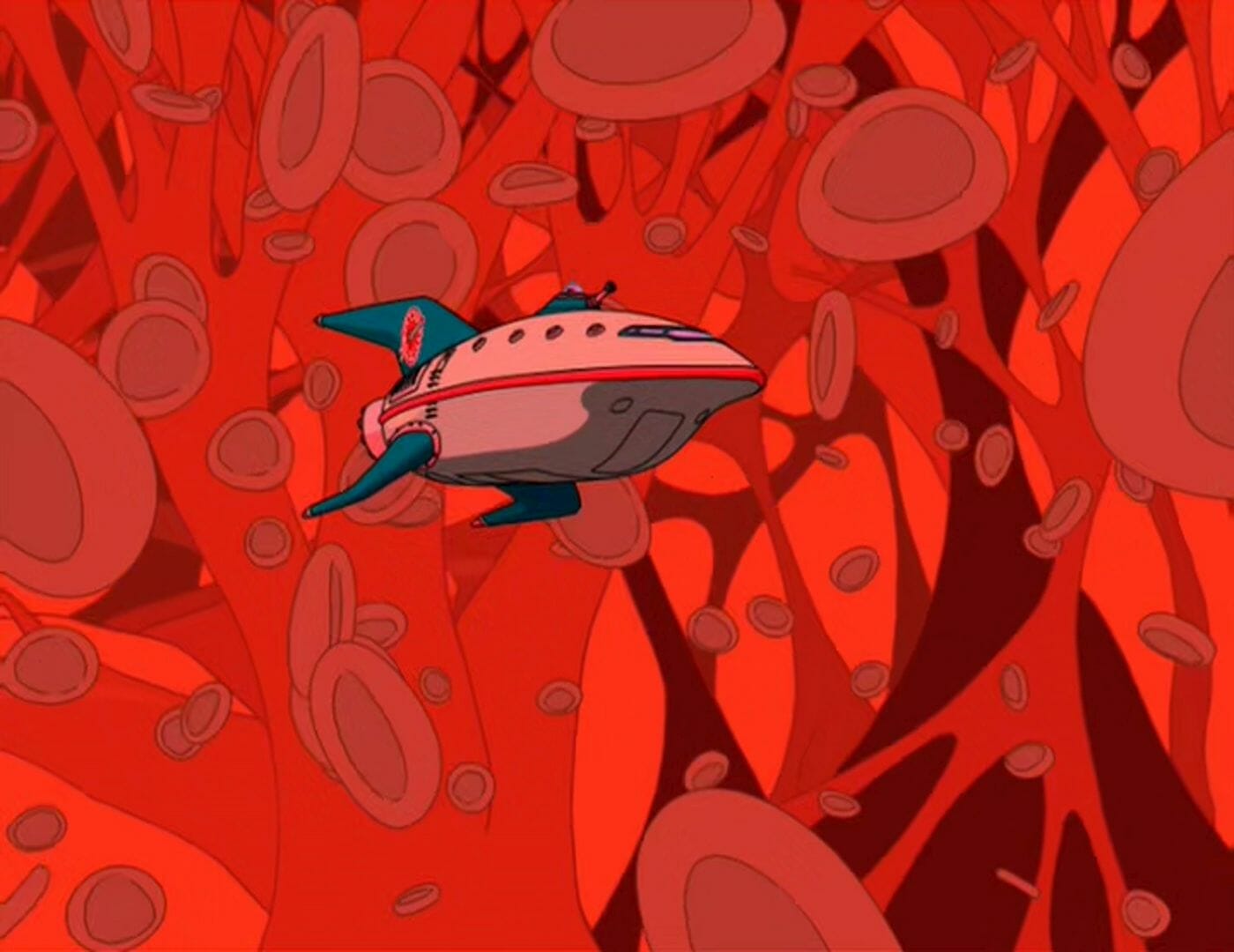
- Season 3, Episode 2
Many cherished “Futurama” episodes, like this Season 3 gem, revolve around Fry and Leela. It appears that the duo will eventually get together after some tiny bugs from a truck stop egg sandwich remodel Fry into a perfect guy from the inside out.
When you first see Fry take the poisoned sandwich, that’s about the last place you’d expect the narrative to go, and it’s that surprise that makes “Parasites Lost” so unforgettable.
17. The Prisoner of Benda
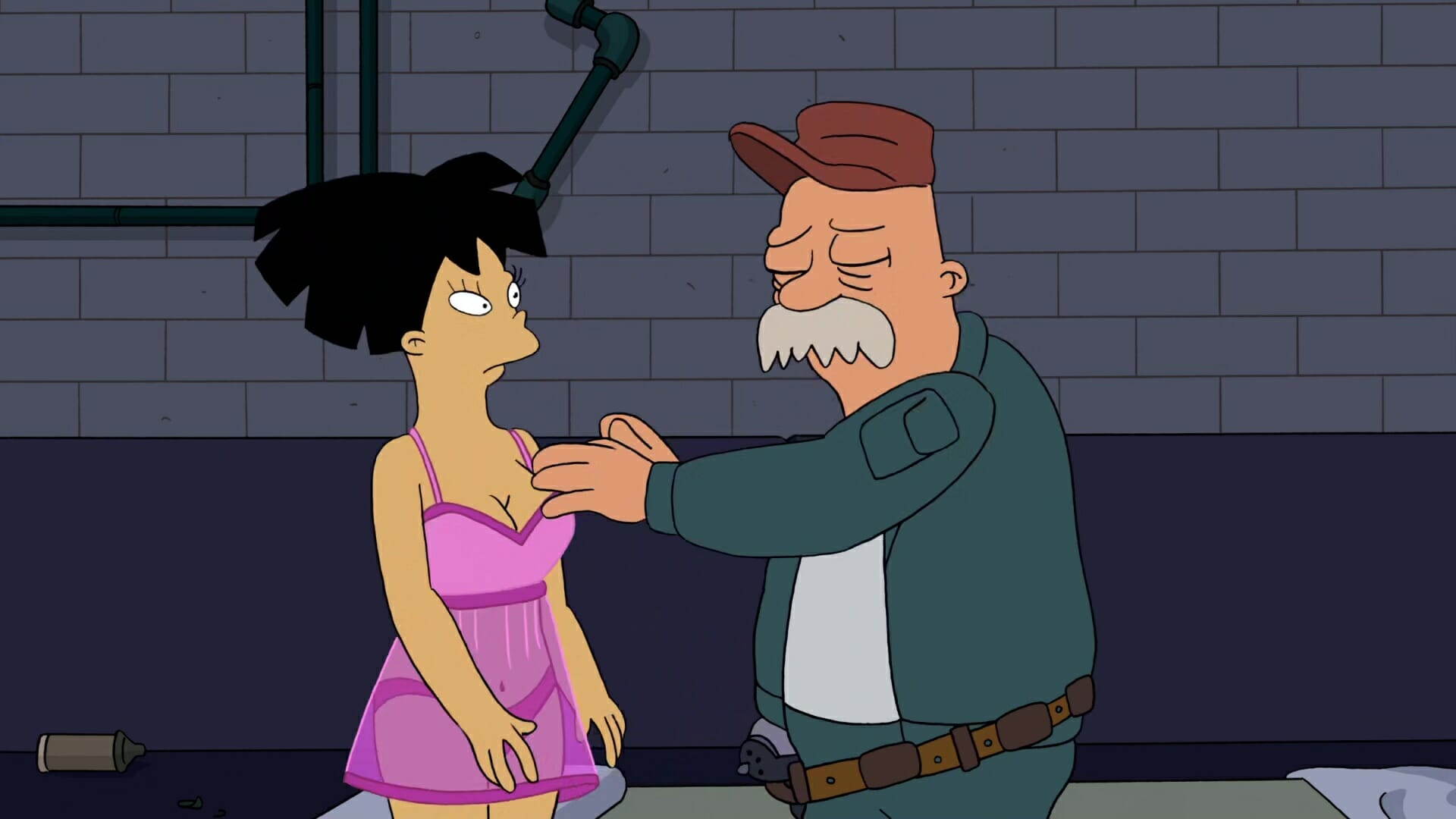
- Season 6, Episode 10
While “The Prisoner of Benda” is indeed an entertaining episode with such a simple premise — numerous members of the crew initiate swapping minds using a mind-switching device but can’t just switch back — the real breakthrough here is that author Ken Keeler evolved a real mathematical theorem (now known as the Futurama theorem) to explain the plot’s crux.
It is the first documented theorem to be developed for the sole purpose of amusement in a TV program. Therefore it makes our list for that reason. (GO MATH!)
16. Three Hundred Big Boys
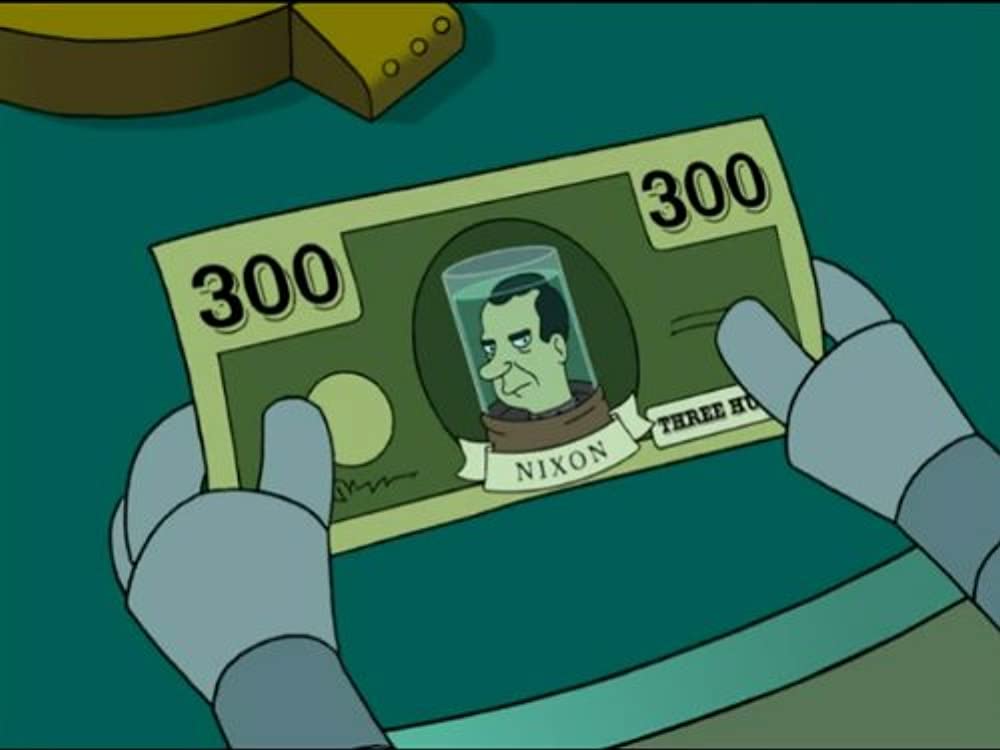
- Season 4, Episode 16
“Three Hundred Big Boys” demonstrates how a basic notion can drive a whole half-hour of humor, that concept being “What if we handed everybody on Earth an additional $300?” The outcomes are unexpectedly enjoyable: Leela dives with a whale, the Professor purchases anti-aging stem cell cream, Fry eats 100 pots of coffee, and Bender foregoes a $300 cigar in favor of stealing a $10,000 one.
While each purchase contributes to a distinct, hilarious plot, what’s most astounding is how they all intertwine and conclude, as Fry’s 100th cup of coffee propels him into an enlightened condition that enables him to save everyone from a raging inferno in the blink of an eye.
15. Roswell That Ends Well
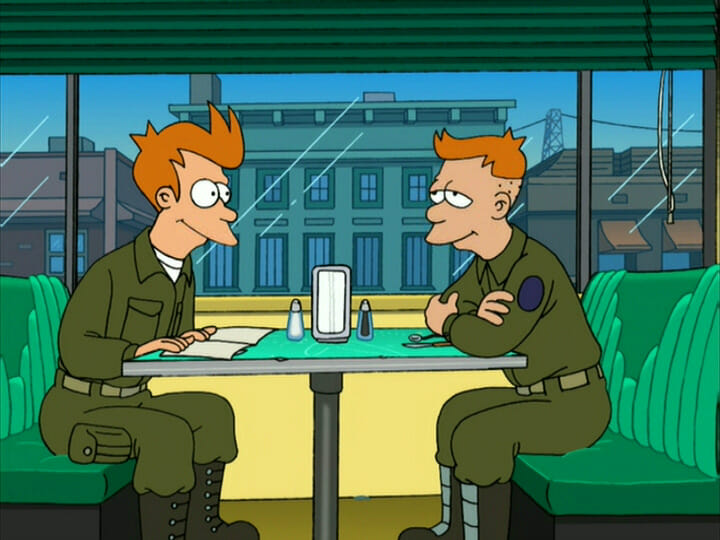
- Season 3, Episode 19
“Roswell That Ends Well” is a Comedy Central Futurama masterpiece, both for its amusing look at the 1950s and for its great use of contradiction. As the series’ 1st ever time-travel storyline, this episode is also significantly different from past episodes in which Fry plays a directly affecting role in his past. Meanwhile, the Planet Express crew accidentally changes human history forever (or maybe fulfills its destiny, depending on how you look at it).
Here, Fry’s family affair is more of a humorous journey than an emotional one, but it’s just as powerful. “Rosewell That Ends Well” is a great lesson in time-travel satire and comedy using a time machine, from Zoidberg’s appearance as the least threatening alien the US government has ever captured to Fry practically becoming his own grandfather.
14. The Luck of the Fryrish
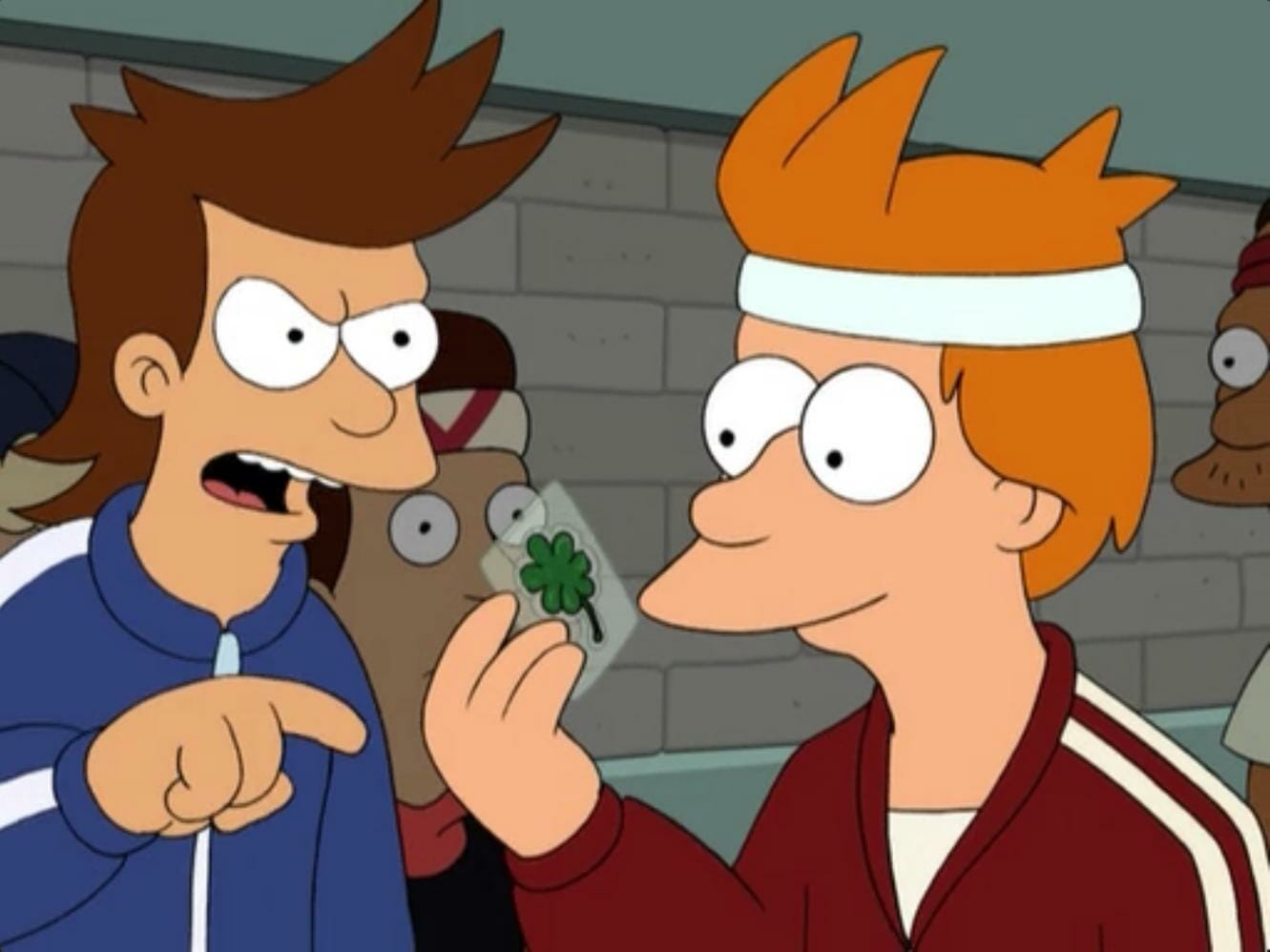
- Season 3, Episode 4
There are a few fantastic Futurama episodes that have flashbacks, which provide us additional context for Fry’s thoughts on his family — his mom, dad, brother, and his dog, Seymour. In fact, each one gets its own unique episode, but some of them are heartbreaking episodes. Don’t see “Jurassic Bark” unless you have a box of Kleenex handy.
“The Luck of the Fryrish” from Season 3 depicts Fry’s tumultuous connection with younger brother, Yancy (Tom Kenny). Despite the fact that Philip is the younger of the two, we can tell that Yancy has been envious of him since the day he was born.
There’s a lot of hatred centered around a “lucky seven-leaf clover” that Fry attempts to regain from the ruins of Old New York in the year 3,000.
There, Fry sees a statue of Yancy, who claims just to be Philip J. Fry, the very first man to set foot on Mars. In the last act, Fry goes on an emotional trip, initially feeling angry at his brother over snatching his name and later experiencing serene grief when he finds that the monument was actually erected to honor Yancy’s kid, named after his absent uncle.
13. Love and Rocket
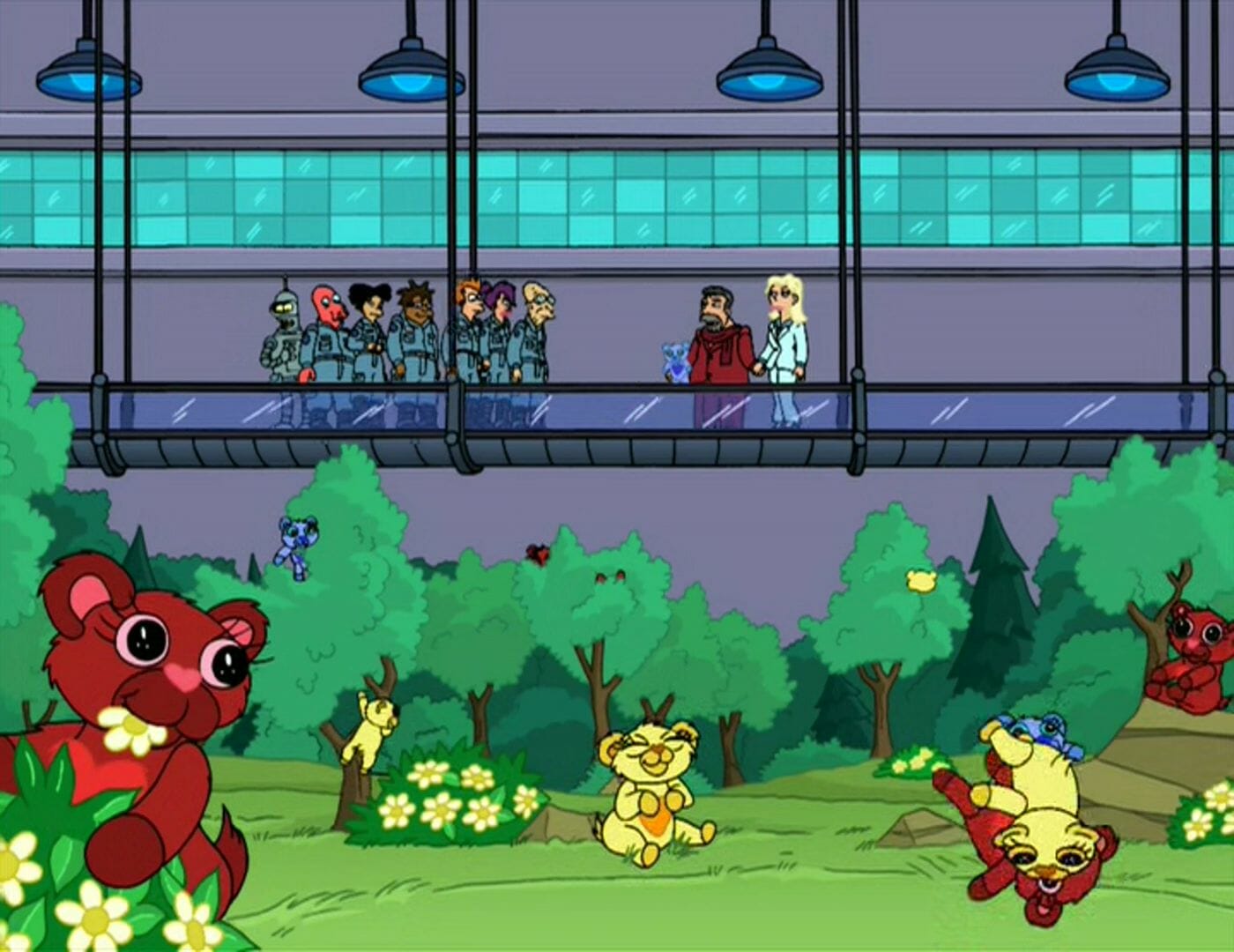
- Season 4, Episode 3
In this Season 4 episode, disaster strikes when Bender finds love with the Planet Express ship’s electronic controller. Notably, this episode features one of the series’ biggest guest performances: Sigourney Weaver as the clinging computer.
“Love and Rocket” is a typical case of “Futurama” in its most heinous. Leela wrecked “two mafia worlds and a cowboy world” out of simple laziness by tossing her goods into a nearby star, according to Zoidberg. However, there is still an opportunity for sincerity in this episode, in which Fry sacrifices his oxygen just to save Leela’s life.
12. Mars University

- Season 1, Episode 11
The series’ science fiction premise provides many possibilities to criticize the present and breathe new life into stale old themes. That is definitely true for Season 1’s “Mars University,” a satire of college education and college movies.
Fry makes his entrance at Mars University and shares a room alongside Professor Farnsworth’s experiment, Guenter, a monkey who obtains superhuman intellect through a mechanical bowler hat. Meanwhile, Bender reclaims his former fraternity from its current losers.
Bender’s frat pranks intensify the goofiness of college comedy cliches to the point where they become amusing again. Tress MacNeille’s sad portrayal as, of all things, a talking monkey in this early episode foreshadows the dramatic gut punches that would come later in the series.
11. Leela’s Homeworld
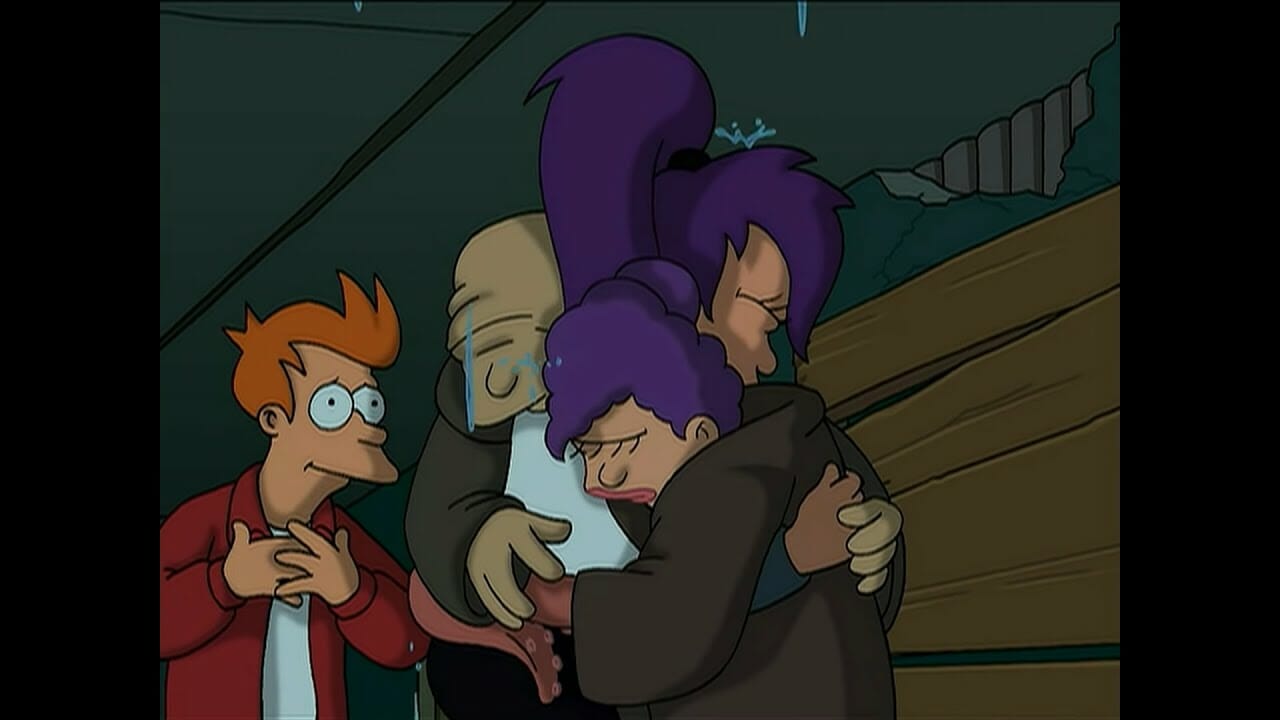
- Season 4, Episode 2
Many of “Futurama’s” finest episodes are also its saddest. Its capacity to touch viewers’ emotions is even more astounding when you consider the limitations under which it functions.
The principal characters are frequently torn, fried, and annihilated in the show’s perverse comedy. “Futurama” can, however, change on a dime and make you care strongly about those same characters’ well-being.
This is especially true in Season 4’s “Leela’s Homeworld,” which delves into Leela’s childhood loneliness before revealing her true parents. As it comes out, Leela discovers they’re sewer freaks who made their daughter believe she was an extraterrestrial orphan in order to provide her with a better quality of life on the surface. The episode concludes with a shockingly genuine moment: Leela and her parents reconnect.
10. The Why of Fry

- Season 4, Episode 10
Futurama had been on the brink of being canceled by the fifth season. The authors worked hard to tie up loose ends, and “The Why of Fry” did an excellent job of resolving Fry’s tale in regard to how he wound himself in the future in the first place. During a walk with Leela’s pet, Nibbler, the little poop machine discloses to Fry that he can talk and is an intelligent entity from an old species.
Nibbler then transports Fry to his home world, where the Nibblonians inform him that he’s the most valuable person on the planet. Big bad brains are attempting to kill the world, and Fry is really the only person immune owing to his lack of a delta brainwave pattern — irritated by his unlucky acts in “Roswell That Ends Well.” At the very least, they didn’t force Fry to do awful things with his grandmother for laughs, did they?
The scene takes a surprising turn when the brains explain to Fry that Nibbler was the one who covertly shoved him into the frozen tube in 1999. Indeed, as Fry’s chair slides over backward, depositing him into the cryo-chamber, Nibbler’s silhouette can be seen underneath the desk in “Space Pilot 3000.”
The brain effectively sends him back and prevents Nibbler, allowing Fry to continue his life for many years. Still, he eventually agrees to let everything go back to normal because of his affection for Leela.
9. A Flight to Remember
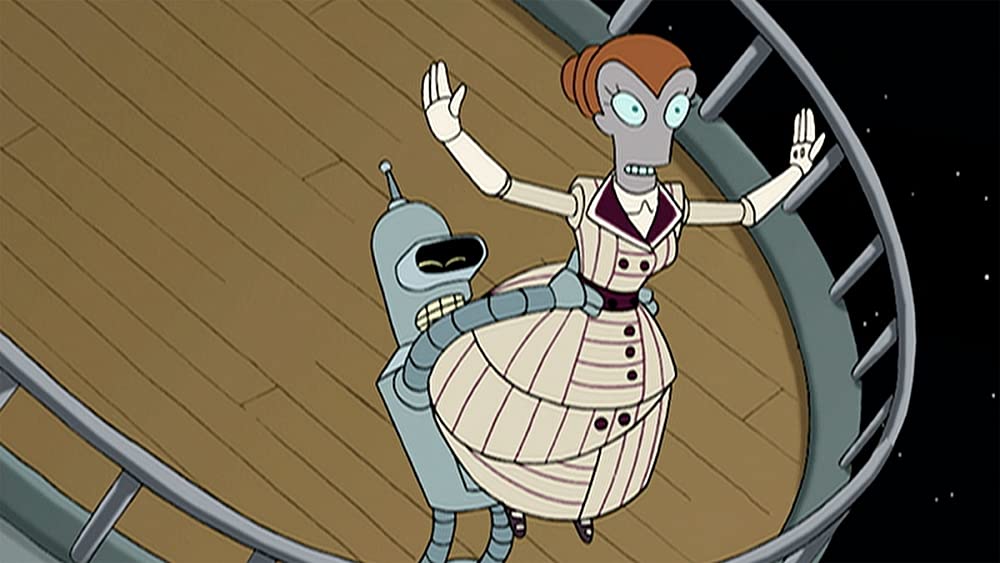
- Season 1, Episode 10
The Season 2 opening episode, “A Flight to Remember,” combines character growth for both Fry and Leela with a typical Futurama spoof narrative. The Professor sends the entire crew on a space voyage, and the writers make no attempt to disguise the fact that they are satirizing Titanic. In the episode, the vessel is even referred to as the “Titanic.”
Leela meets Captain Zapp Brannigan (West) aboard the huge spaceship, a past lover she prefers to avoid. This sets up the tension for the episode’s primary narrative, which involves Fry faking to be Leela’s boyfriend in order to keep Zapp at bay. Bender also impresses in a narrative about star-crossed lovers based on the plot of Titanic.
However, what made this one so amazing is that we see the roots of Fry & Leela’s love being sown for the first time. They lean in for what could have been their first true, passionate kiss on the bow of the Titanic if Brannigan hadn’t piloted the spaceship right into a black hole. The main crew, predictably, escapes the tragedy, but Fry and Leela return to not resolving the sexual chemistry for a bit.
8. Space Pilot 3000 – The introduction to Planet Express crew
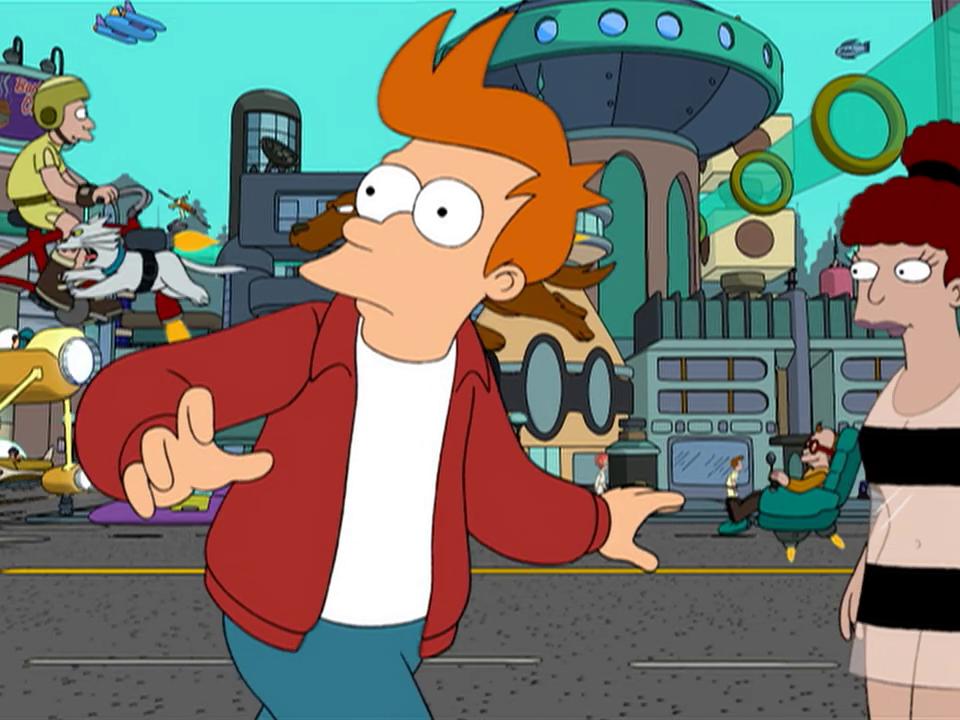
- Season 1, Episode 1
The premiere episode, “Space Pilot 3000,” is without a doubt the greatest of the nine-episode first season. In approximately 23 minutes, we learn everything we need to understand about the situation and primary characters of Futurama, and it’s a classic story. And, while this would be a bad statement if it were about an other program, it contains some of the series’ greatest humor.
Futurama depicts the adventures of Philip J. Fry (Billy West), a pizza delivery person in New York City, in 1999. In a nutshell, he despises his life. That actually works out for him when a botched pizza delivery leads to Fry getting frozen in a cryogenic preservation lab for 1,000 years. When he realized he was now alive in the year 2,999.
7. Teenage Mutant Leela’s Hurdles
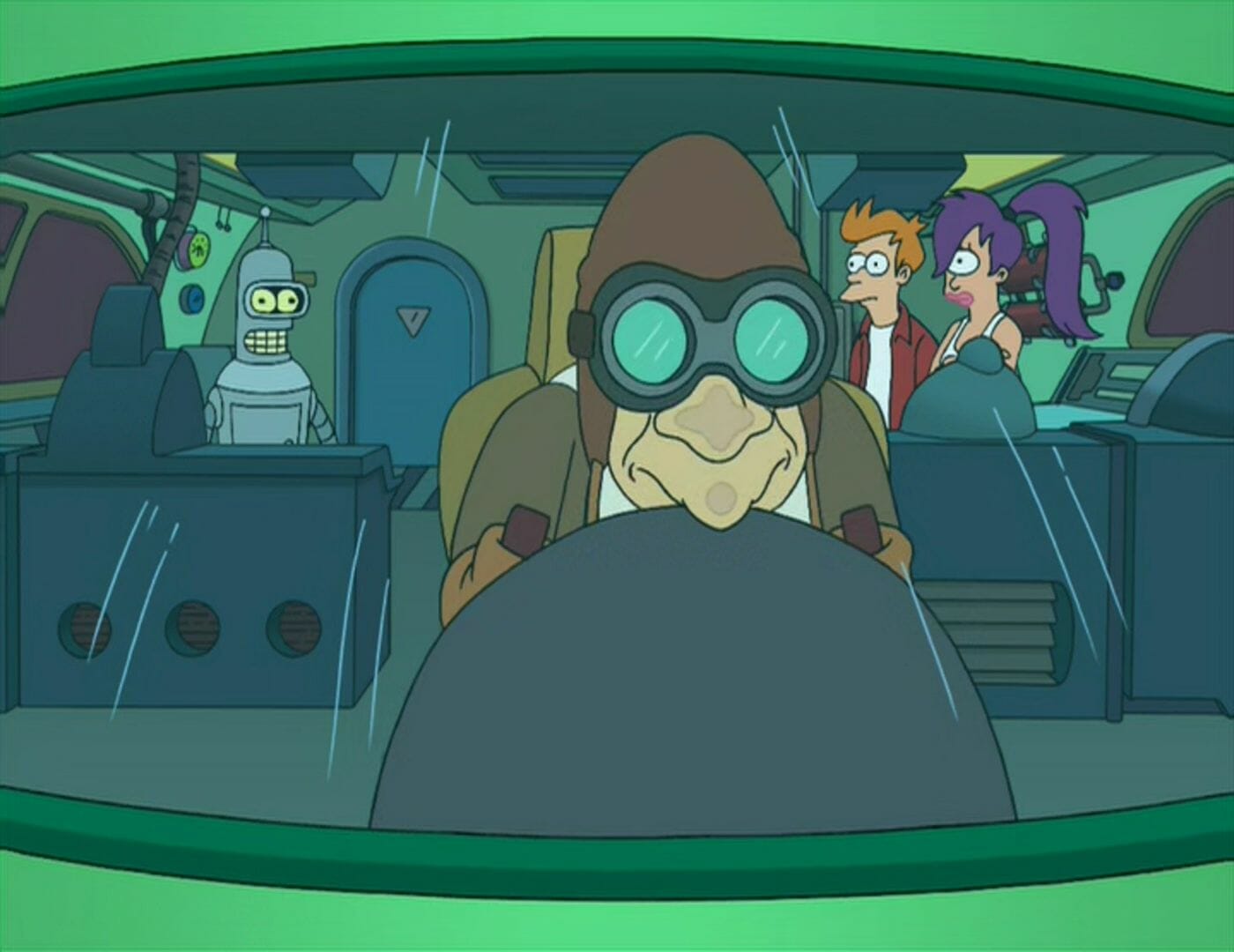
- Season 4, Episode 9
The episode “Teenage Mutant Leela’s Hurdles” allows “Futurama” to delve into Leela’s relationship with her parents, Morris and Munda. This is important material, but it mostly culminates in one of the most entertaining episodes of the whole series. We begin with the Professor rushing after his pet gargoyle (“Pazuuuuuzuuuuuuuuuuuuuuuuuuuuuuuuuuuuuuuuuuuuuuuuuuuuuuuuuuuuuuuu)
The Planet Express crew takes him to be “youthacized.” Unfortunately, Bender’s overzealous pumping drowns the entire group in anti-aging goop.
It’s quite hilarious to watch our planet express crew’s heroes suffer the humiliations of childhood. Leela uses the occasion to relive her adolescence with her parents, who appear to be unsure of their roles (“No beer until you’ve had your tequila!”).
Long before that narrative can lose pace, we have a whole new set of humor as the Professor tries to restore the crew back to normal – Zoidberg’s many phases of life must be seen to be believed. The laughter continues till the end credits.
6. The Prisoner of Benda

- Season 6, Episode 10
“The Prisoner of Bendahumor “‘s begins in the cold open, as newsreaders Linda and Morbo declare, “Tonight at 11… DOOOOOOM!” From there, we discover that Farnsworth has mastered his brain-switching machine, launching a plot so convoluted that an exceedingly sophisticated and completely actual mathematical theory (via Wired) is required to wrap things up.
“The Prisoner of Benda” packs a season’s worth of narrative into its 22-minute running time: Bender snatches the Robo-Hungarian crown jewels, Fry and Leela marry (in Zoidberg and Farnsworth’s bodies), the Professor joins the circus as the daring Nonchalanto, and Scruffy the janitor and his robotic wash bucket have a brief but funny forbidden affair.
5. Godfellas
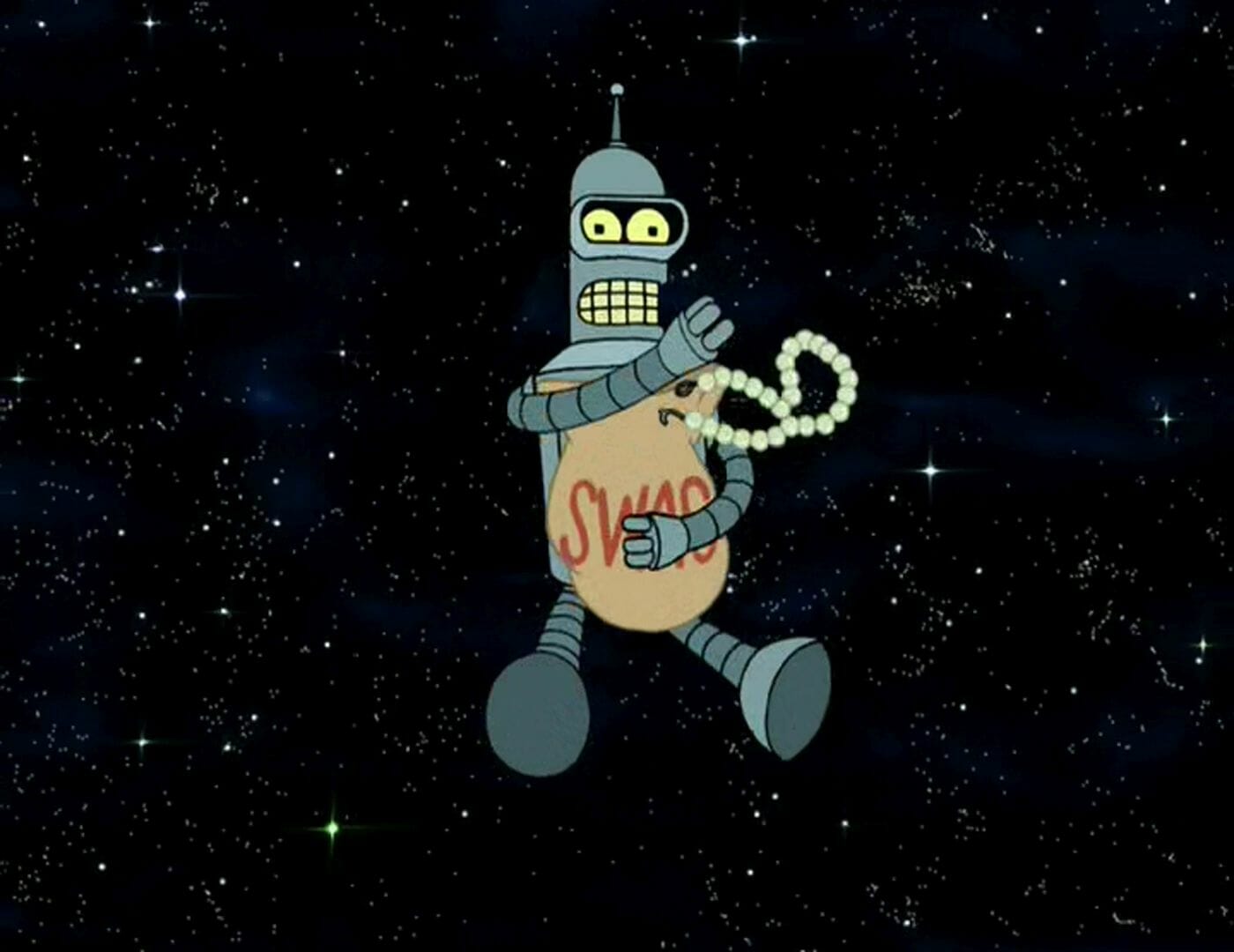
- Season 3, Episode 20
“Godfellas” from Season 3 begins with the all-great sequence of quick-fire comedy and finishes with one of the show’s most contemplative moments. Everything is summed up by an image that is both sorrowful and pretty funny: Bender floating alone in the vacuum, playing piano.
When Bender provides both a home and a deity to a species of microscopic aliens, he tries and fails terribly. Many science fiction cliches are addressed in Bender’s quest for godhood, and via them, “Futurama” examines some very massive metaphysical issues. This contemplative plot is rendered all the more touching by Fry’s undying affection as he explores the cosmos for his robotic buddy.
4. The Farnsworth Parabox
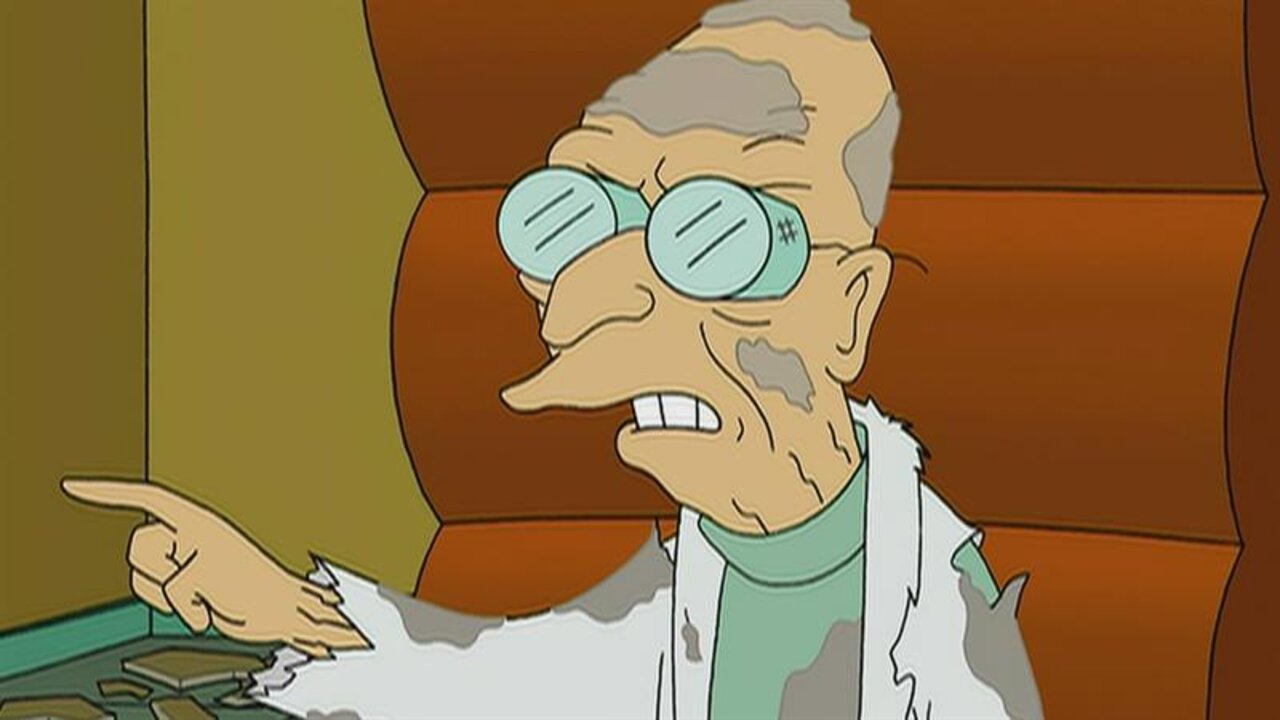
- Season 4, Episode 15
In this Fourth season parallel world episode, “Futurama” creates its own science fiction subgenre. Farnsworth confines Planet Express behind a mystery box after his newest experiment almost kills it – he prays to every deity imaginable for assistance, concluding, “Satan, you owe me!” No one is to look inside, he says.
Leela, of course, peeks inside and discovers another universe with some other Planet Express.
It’s never boring to see individuals interact with their other selves. Even if it never went past Farnsworth straight-facedly remarking, “Now, now, precisely symmetric violence never solved anything,” this would have been a winner.
But the authors go above and above when the Zoidbergs take the box, prompting the rest of the group to chase them through the parallel universe.
3. Reincarnation
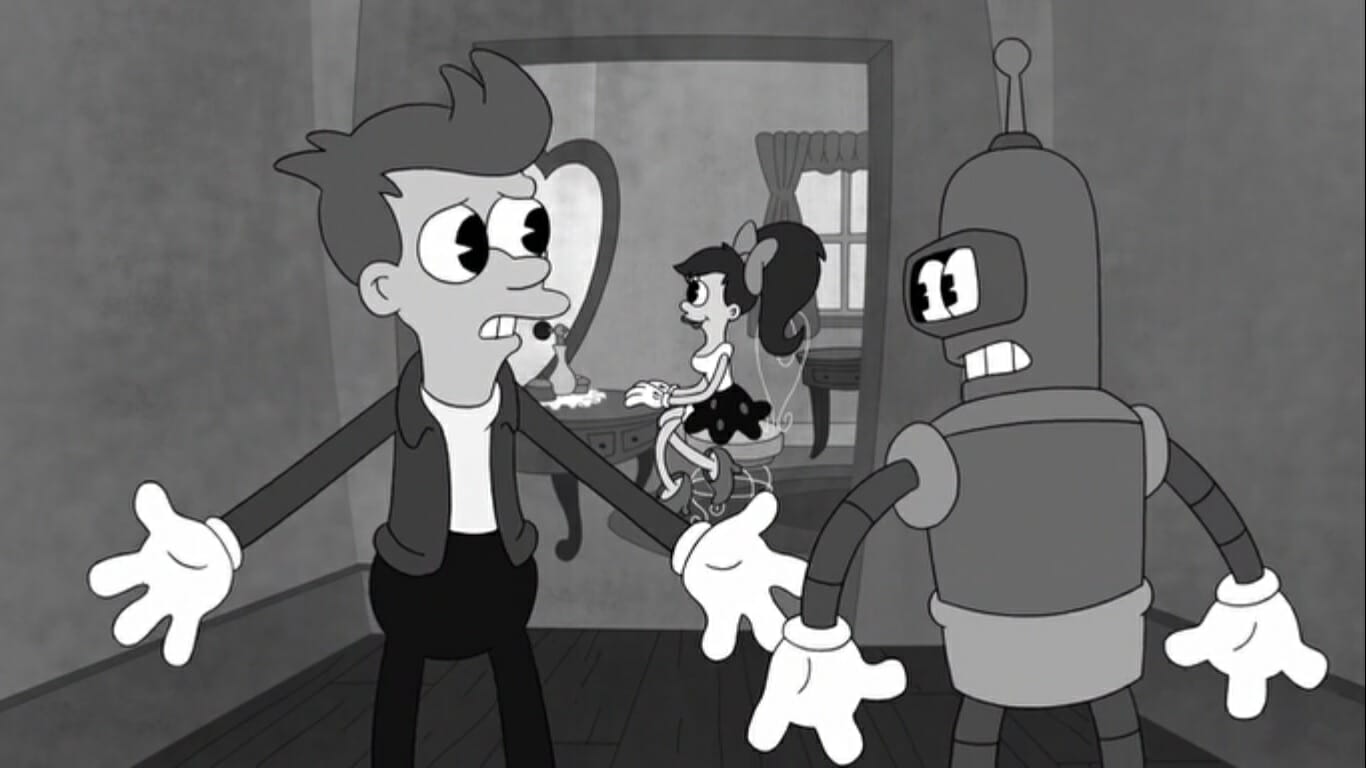
- Season 6, Episode 26
In this Season Six episode, the series’ fondness for parody is put to use. “Reincarnation” is divided into three sections, each with its own animation style. The first one is a black-and-white cartoon from the 1930s, the second is a video game from the 1980s, and the third is anime.
The funniest humor in this episode is saved for the last chapter, which offers spot-on parodies of faulty translating (skewering dubs and subs), too-lengthy subplots, and all the other anime flaws. That’s not to suggest the other portions aren’t worthwhile: With the Professor building up a “sadness gauge,” the video game part serves as a fitting analogy for “Futurama” as a whole. Simply said, “Reincarnation” is among the most distinctive episodes of the series.
2. Jurassic Bark

- Season 4, Episode 7
Oh, the emotions! this episode is often regarded as Futurama’s saddest episode, yet it is also generally recognized as the explanation of why Futurama distinguishes out from other animated series. The plot revolves mostly around a man and his dog.
When Fry discovers the petrified bones of his pet Seymour, he wishes to clone him. But, when the time comes, Fry declines to proceed with the cloning procedure, knowing that his dog has had a long and probably wonderful life without him. The heartbreaking twist?
Seymour waited for his master’s return every day since Fry left. We see Seymour patiently waiting outside Panucci’s Pizza in a last flashback that would make any mature man cry.
1. Meanwhile
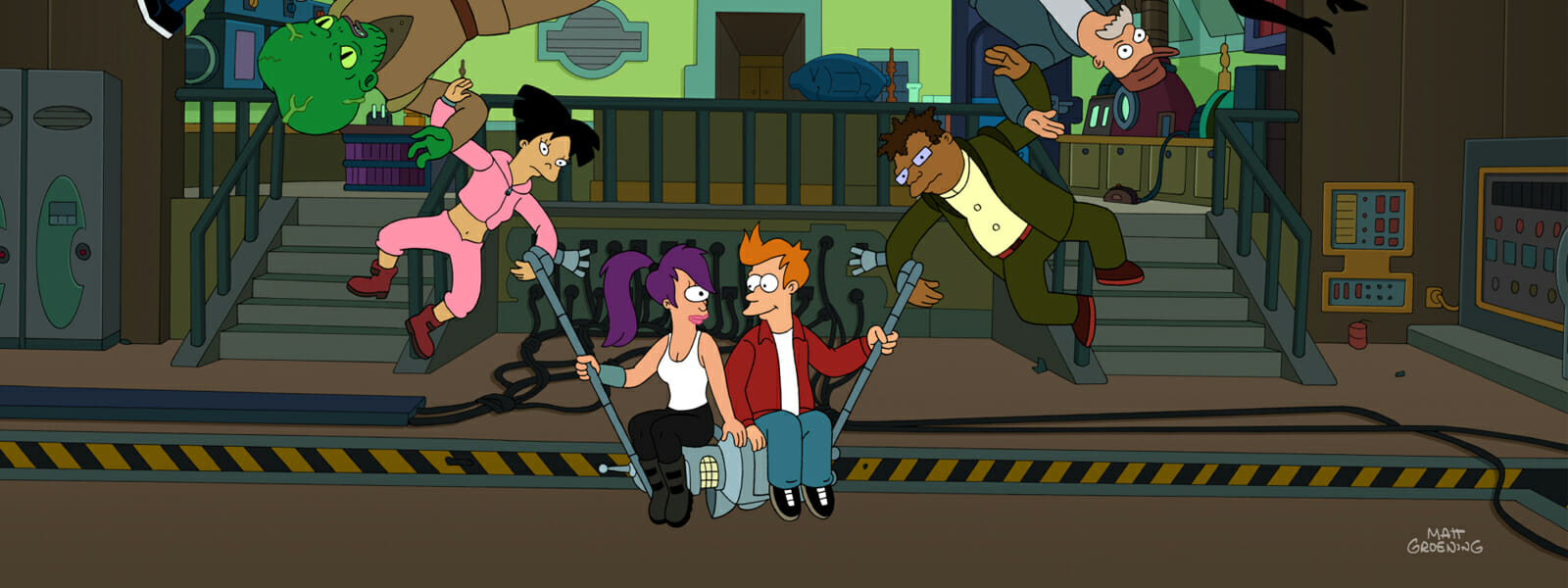
- Season 7, Episode 26
Comedy Central created one additional season, this time consisting of 26 episodes split into two 13-episode chunks. The ending, “Meanwhile,” was without a doubt the greatest and most meaningful. Not only is it a satisfactory finale to Futurama’s lengthy, meandering history, but it also provided us with just about everything we required for Fry and Leela.
The narrative revolves around Fry’s intention to propose to Leela at 6:30 p.m. at the pinnacle of the Vampire State Building. But, prior to his date, he and Bender abuse the Professor’s newest invention — a time travel gadget. Professor Farnsworth – “Time Button” is a gadget that permits the user to travel back in time 10 seconds.
When Fry believes Leela has dumped him on their date, thereby rejecting to spend the rest of her life with him, Fry leaps off the building in despair.
This is simply a misconception caused by Fry’s watch being fast owing to all of the 10-second reverse time leaps. As he falls, he becomes trapped in a time loop, causing time to stop for everyone to save him and Leela.
We watch a montage of their lives across several decades as the rest of the cosmos stays frozen in time. They marry and embark on a long honeymoon throughout the world, and it’s a lovely and poignant climax to the series’ initial run.
